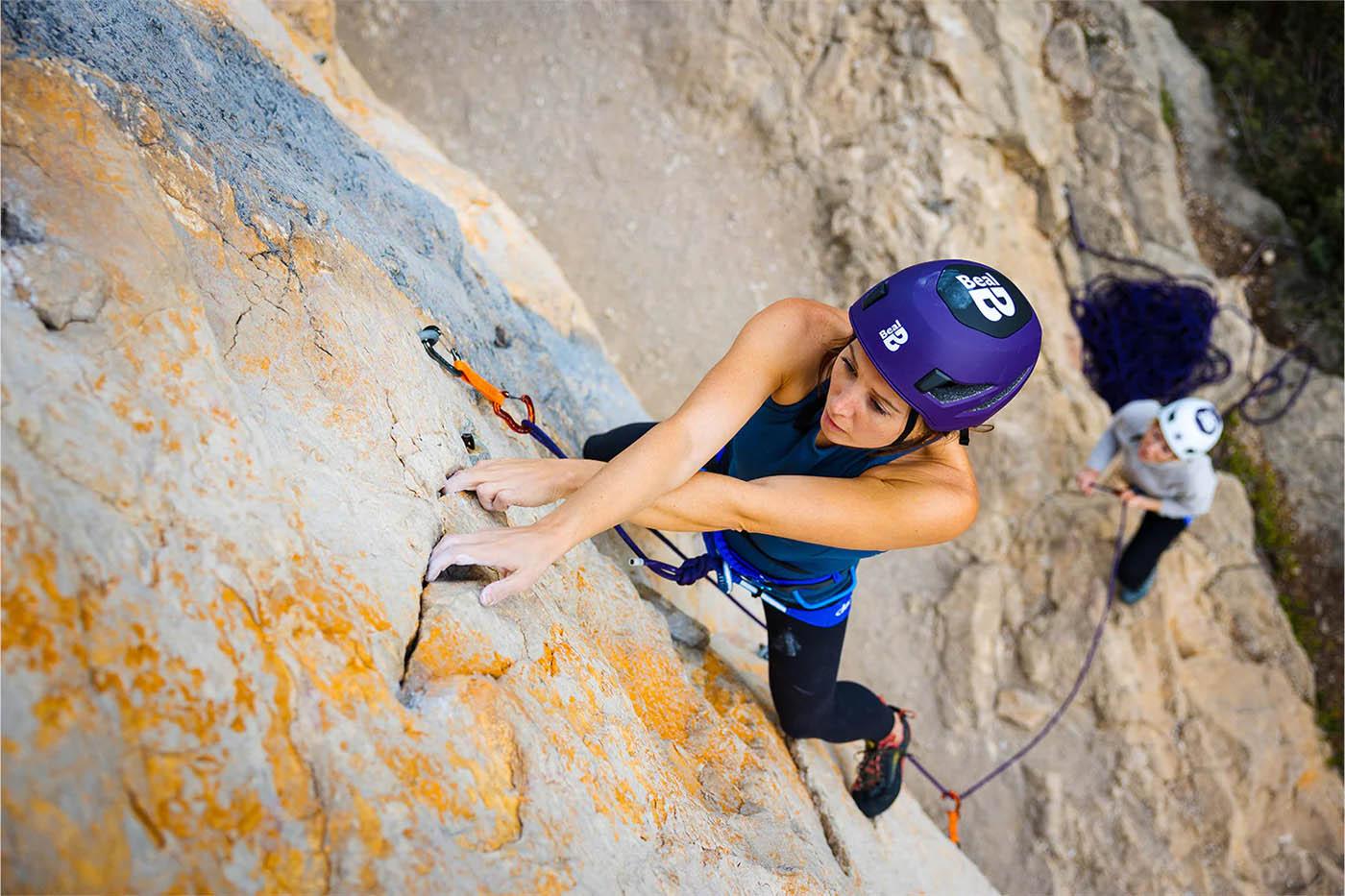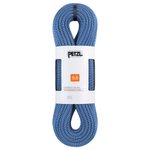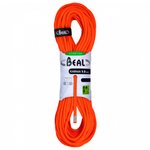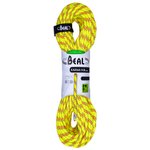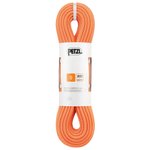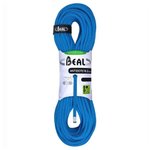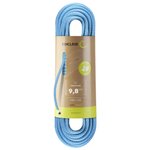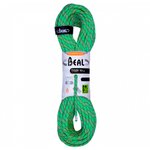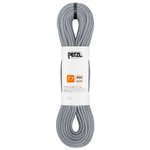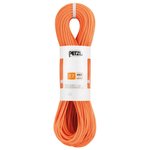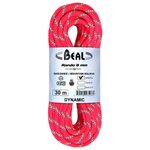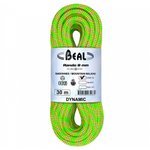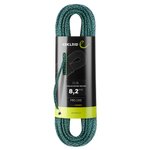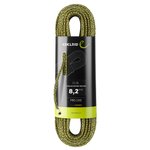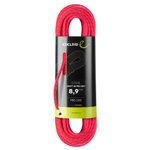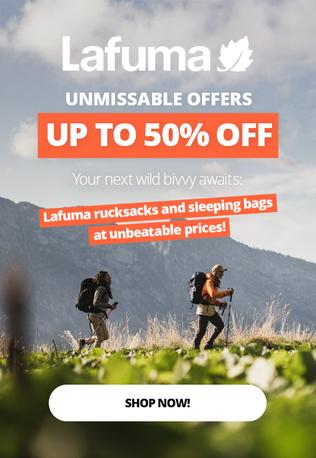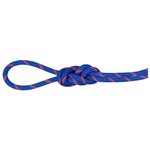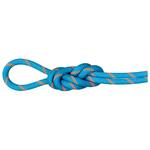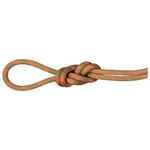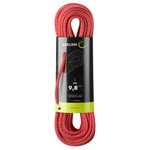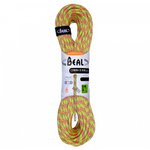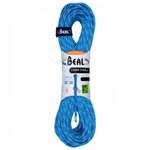Climbing ropes
Explore our range of climbing and mountaineering ropes, essential for your safety during climbs. Whether you need dynamic ropes, single or half ropes, our selection meets all your requirements. Choosing the right length, diameter, and rope type can be confusing, but we’re here to guide you. Browse our catalogue and find the rope that suits your needs, at an affordable price, with leading brands like Beal, Edelrid, Mammut, or Petzl, and lengths of 30 m, 40 m, 50 m, 60 m, 70 m, 80 m.
Read more Show less
 Further reductions
Further reductions
-
Recommended price
£165.21
-36%
From £104.31
-
- 60
- 70
- 80


-
Recommended price
£108.66
-25%
From £80.91
The Karma 9.8mm x 50 m Yellow is a single rope from Beal that will allow you to save weight on your equipment when crag climbing, while offering good control.
- 50
- 60
- 70
- 80

 Further reductions
Further reductions
-
Recommended price
£108.66
-31%
From £73.95
- 30
- 40
- 50
- 60


-
Recommended price
£136.50
-24%
From £102.57
- 60
- 70
- 80


-
Recommended price
£182.61
-25%
From £136.50
The Edelrid Heron Eco Dry 9.8mm Icemint climbing rope is highly water repellent while keeping a light weight, good strength and excellent manoeuvrability.
- 60
- 70
- 80


-
Recommended price
£108.66
-25%
From £80.91
- 50
- 60
- 70
- 80


-
Recommended price
£176.52
-23%
From £135.63
-
- 60
- 70
- 80

 Further reductions
Further reductions
-
Recommended price
£143.46
-33%
From £95.61
- 50
- 60
- 70

 Further reductions
Further reductions
-
Recommended price
£143.46
-30%
From £100.05
- 50
- 60
- 70


-
Recommended price
£45.15
-23%
From £34.71
- 20
- 48


-
Recommended price
£45.15
-23%
From £34.71
Here is the Beal Rando 8mm with Golden Dry treatment in a Yellow colourway, this treatment improves resistance to friction, water and dirt.
- 20
- 48


-
Recommended price
£165.21
-21%
From £130.41
The Edelrid Starling Protect Pro Dry 8.2mm Icemint Night is a dynamic climbing rope with the dual certification for double and twin use, as well as a Pro Dry finish offering high water repellence.
- 50
- 60


-
Recommended price
£165.21
-21%
From £130.41
The Edelrid Starling Protect Pro Dry 8.2mm Yellow Night is a dynamic climbing rope with the dual certification for double and twin use, as well as a Pro Dry finish offering high water repellence.
- 50
- 60

 Further reductions
Further reductions
-
Recommended price
£200.01
-32%
From £134.85
The Edelrid Swift 48 Pro Dry 8.9mm Pink is a single rope that is also certified for double and twin use. It is one of the thinnest single ropes available.
- 60
- 70


-
Recommended price
£139.11
-18%
£113.01
The Mammut 7.5 Alpine Sender Dry Rope Blue Safety Orange is a half rope benefiting also from the twin rope certification, offering a very low weight and diameter.
- 50


-
Recommended price
£200.01
-21%
£156.51
The versatile Mammut 8.7 Alpine Sender Dry Rope 70M Ocean Vibrant Orange is ultra-light, durable and very easy to handle.


-
Recommended price
£147.81
-15%
From £125.19
- 60
- 70


-
Recommended price
£147.81
-15%
From £125.19
- 60
- 70


-
Recommended price
£126.06
-13%
From £108.66
-
- 50
- 60
- 70
- 80


-
Recommended price
£119.02
-12%
From £104.31
The Cobra II 8.6mm Dry Cover Anis is a lightweight, smooth, resistant and versatile dynamic rope for al mountain sports, made by Beal, the French climbing brand.
- 50
- 60


-
Recommended price
£119.02
-12%
From £104.31
Versatile and dynamic rope offering an excellent weight/resistance ratio, the Cobra II 8.6mm Dry Cover Blue from Beal will follow you on all your mountain activities.
- 50
- 60
Loading...
Choosing a climbing rope: key factors to consider
Choosing a climbing rope depends on several key factors.
- Rope type: Depending on your discipline, you’ll need to choose between single, half (double), or twin ropes. For indoor or sport climbing, single ropes are often recommended. For multi-pitch routes or mountaineering, opt for a half rope.
- Diameter and weight: The rope’s diameter affects both its strength and weight. A larger diameter means greater durability, but also more weight.
- Length: The rope length should match the height of the routes you intend to climb.
- Lifespan and care: A well-maintained rope can last for several years. This depends largely on how often it’s used and how it’s stored.
- Markings and treatments: Some manufacturers offer ropes with a middle mark for easier manoeuvres, or with special treatments that improve durability.
Consider these criteria carefully to choose the rope that best suits your needs.
The different types of climbing ropes
Single rope
The single rope is the most common, ideally used for indoor or sport climbing on crags. It consists of a single strand, making it easier to handle. Single ropes vary in diameter, from very thin (8.9 mm) to thicker options (up to 10.5 mm).
Half rope
Half ropes consist of two strands, each thinner than a single rope. They are used alternately to reduce rope drag and lower impact force in case of a fall. They are typically chosen for mountaineering or multi-pitch climbing because they place less strain on anchors and allow faster abseiling manoeuvres.
Twin rope
As for twin ropes, they resemble half ropes but are used differently. The climber ties in with both strands and always clips them together. You climb as if using a single rope, with no gain in rope drag, but with the advantage of two independent strands offering flexibility for mountain routes and abseils.
In short:
- Single rope: one strand, ideal for indoor or sport climbing on single-pitch routes
- Half rope: two strands, perfect for mountaineering or multi-pitch climbs
- Twin rope: two strands always used together, suitable for long climbs but often replaced by half ropes
The choice between these types of ropes depends on the type of climbing you plan to do.
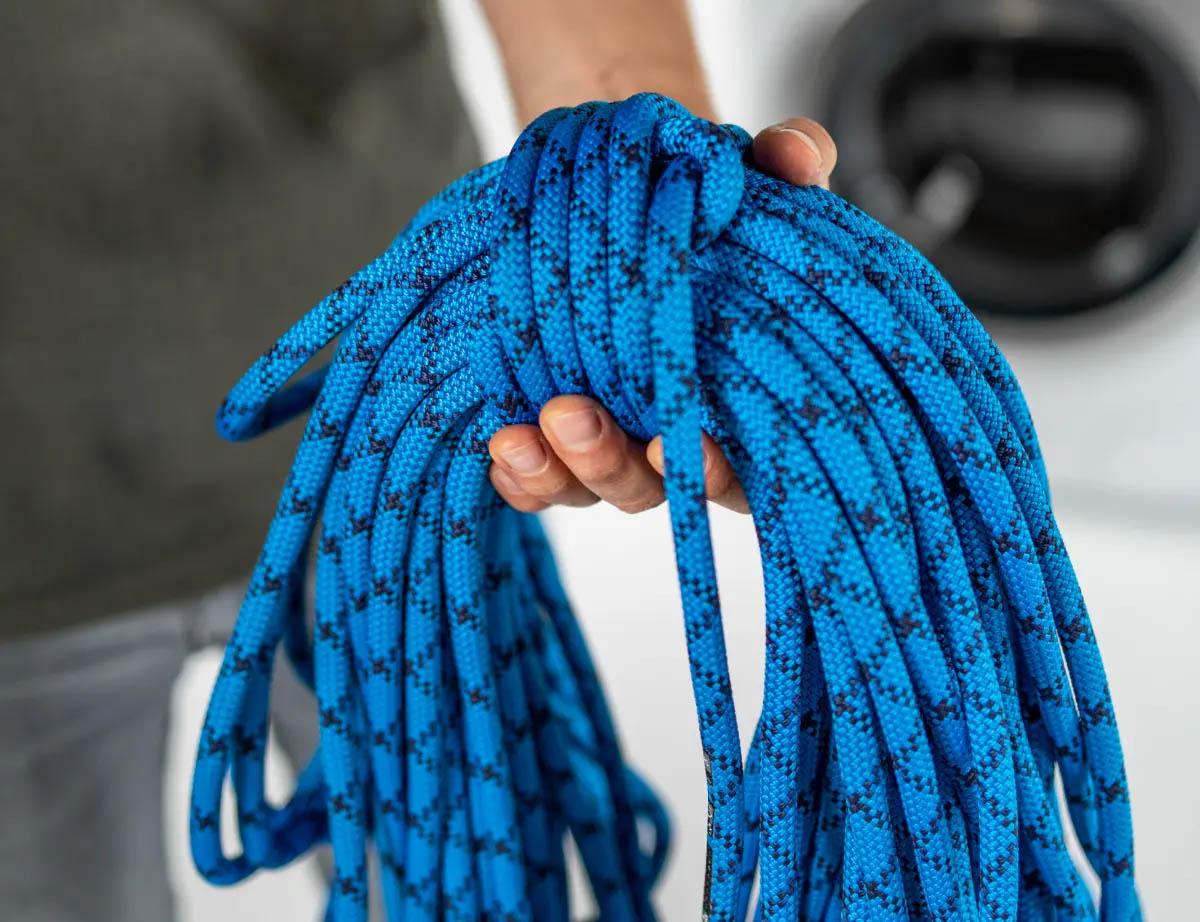
Which rope diameter should you choose?
The diameter of your rope depends on your level of experience and the type of climbing. For beginners and indoor use, a diameter between 9.5 mm and 10.2 mm is recommended, as it provides a good grip and maximum durability. This diameter also helps slow the rope's movement through the belay device, making belaying safer and easier.
More experienced climbers may prefer thinner ropes, from 8.9 to 9.4 mm, for greater lightness and fluid handling.
Note: ropes under 9.4 mm run very quickly through a Reverso. An inexperienced belayer may be caught off guard and burn their hand during a leader fall.
How to choose the length of your rope? 30, 50, 80 or even 100 metres?
As for length, it depends on the wall you’re climbing. For indoor climbing, a shorter rope (around 35 metres) is usually sufficient, although most indoor walls are equipped with dedicated ropes. For outdoor climbing, you’ll need a longer rope, generally between 50m or 60m and 80 metres. In most cases, a 70-metre rope is a versatile choice for all types of climbing.
80-metre ropes offer more flexibility on very long routes, but their weight can be a drawback.
GLISSHOP Tip: Whatever length you choose, it’s crucial to secure the rope’s end. As a safety measure, always tie a knot at the end or attach it to the rope bag.
How to clean and store your climbing rope
Proper maintenance can extend your rope’s lifespan. For cleaning, use water below 30°C and a mild detergent, such as Marseille soap. Soak the rope in a basin or bathtub for about an hour. You can also machine wash it, but with care.
Drying should be done away from direct sunlight and heat sources. Lay the rope in large loops or fold it in chain knots.
Washing removes grains of sand and dust that can wear down the rope’s core and sheath over time through repeated abrasion.
Regularly inspect your rope for signs of wear to ensure safety during climbs and check its elasticity. If you pinch the rope between your thumb and index finger and the loop flattens completely with both strands touching, the rope is starting to wear and may need replacing. If it forms a nice open loop with space in the middle, it’s still in good condition.
Which rope should you choose for mountaineering, and which treatments are best?
For mountaineering, your rope choice can significantly affect comfort and safety. Half ropes are generally preferred for their lightness and versatility. They are used alternately to reduce drag and lessen the impact force in the event of a fall. Mountaineering anchors are often less reliable than glued bolts in sport climbing, so reducing the force on pitons, slings, nuts, deadmen, threads, or ice screws is critical to avoid pulling them out.
As for treatment, don’t hesitate to opt for hydrophobic ropes with designations like Golden Dry, Dry Cover, Pro Dry, or other water-repellent treatments applied to the core and sheath, depending on the brand. These prevent the rope from absorbing water, which can cause it to swell, become stiff and heavy, and run poorly due to freezing.
It’s also advisable to choose a rope with a reinforced sheath to resist abrasion and sharp edges commonly encountered in mountaineering.
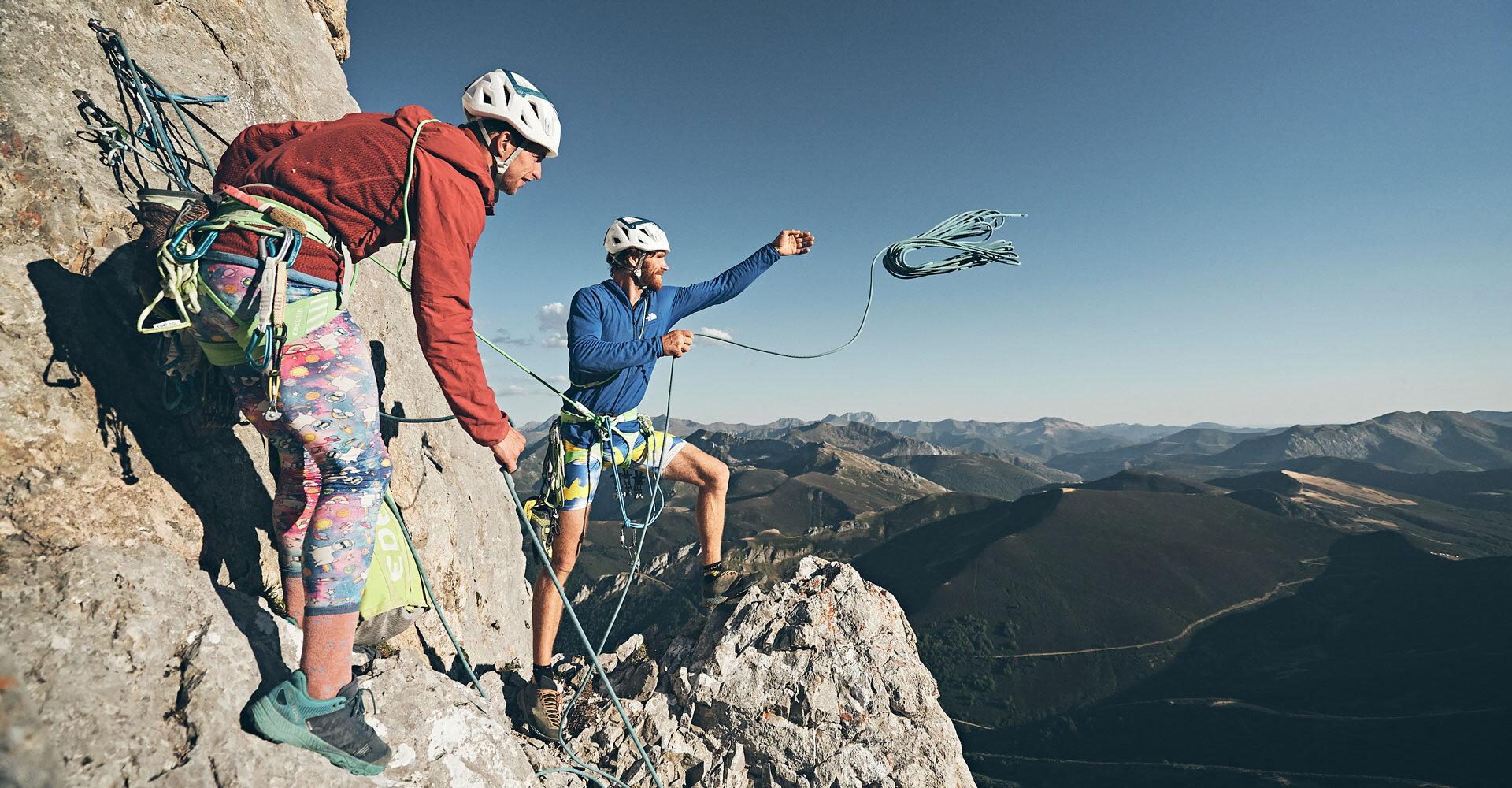
Going further: shock force and dynamic ropes
Shock force is a crucial concept in climbing. It represents the maximum force exerted on the climber and their gear during a fall. It is measured in kilonewtons (kN) and depends on several factors, such as:
- The climber’s weight
- The fall factor
- The rope’s characteristics
All climbing ropes are dynamic ropes that stretch during a fall to absorb energy. Dynamic climbing ropes differ entirely from static or semi-static ropes used for other vertical activities like canyoning or zip lines.
A quality climbing rope should have a low shock force to minimise the impact on the climber. As a general rule, the lower the shock force value, the better the fall is absorbed. For reference, a good rope typically has a shock force of around 700 kg or 7 kN.
This is one of the main reasons climbing ropes are dynamic — they’re designed to stretch under load and absorb the energy generated during a fall.
The must-have accessory: rope bag or rope tarp
The rope bag or rope tarp lets you transport your climbing gear, protect your rope, and extend its lifespan. Some rope bags are large enough to carry your harness, shoes, quickdraws, and other climbing accessories. There are also backpack-style bags designed for climbers tackling single- or multi-pitch routes. For sport climbers, it’s great for carrying gear, documents, and protecting your rope with an integrated tarp.
This accessory is just as essential as the rope itself for an optimal climbing experience.
Buy your climbing rope at the best price at Glisshop
Ready to climb with confidence? At Glisshop, we carefully select the best climbing ropes to meet the demands of both beginners and experienced mountaineers. Whether you climb outdoors, indoors, or on multi-pitch routes, you’ll find the right rope to suit your style and level. Take advantage of our expertise and wide choice of top brands to equip your vertical adventures with complete peace of mind. Explore our range and make the right choice for your next climbs!
